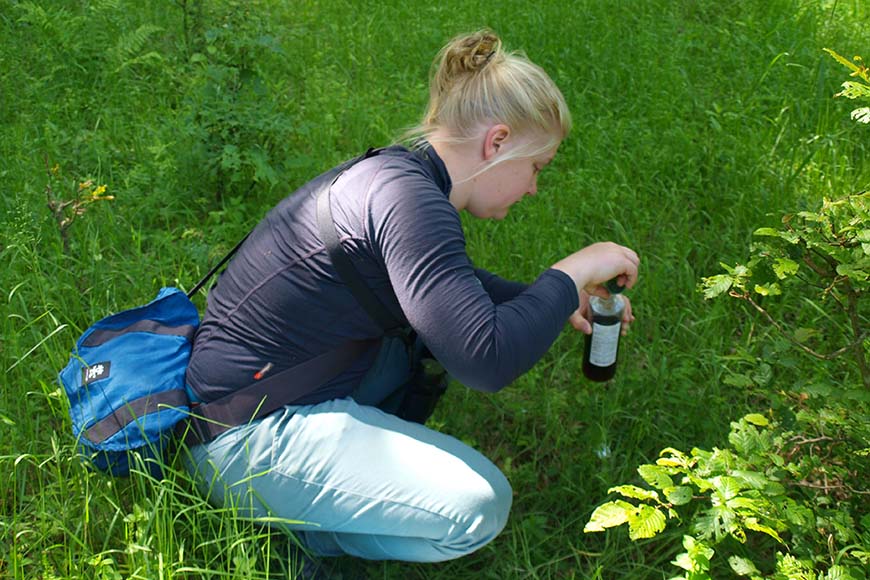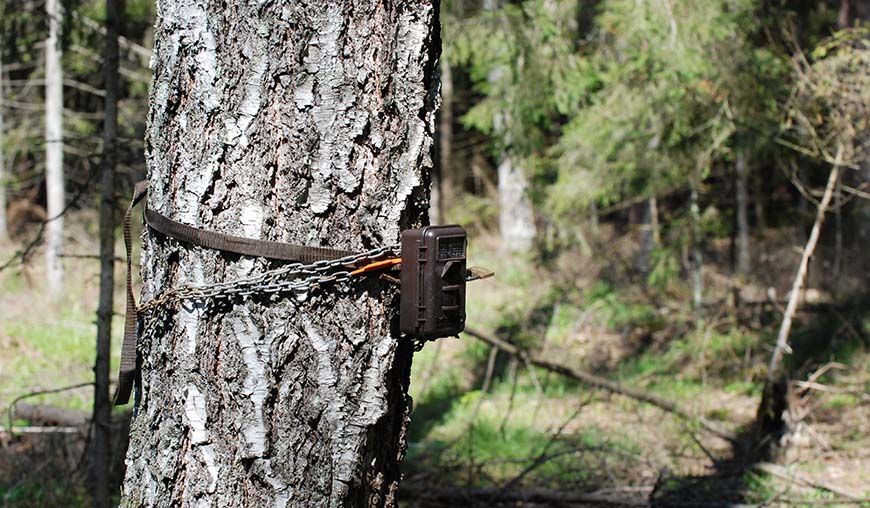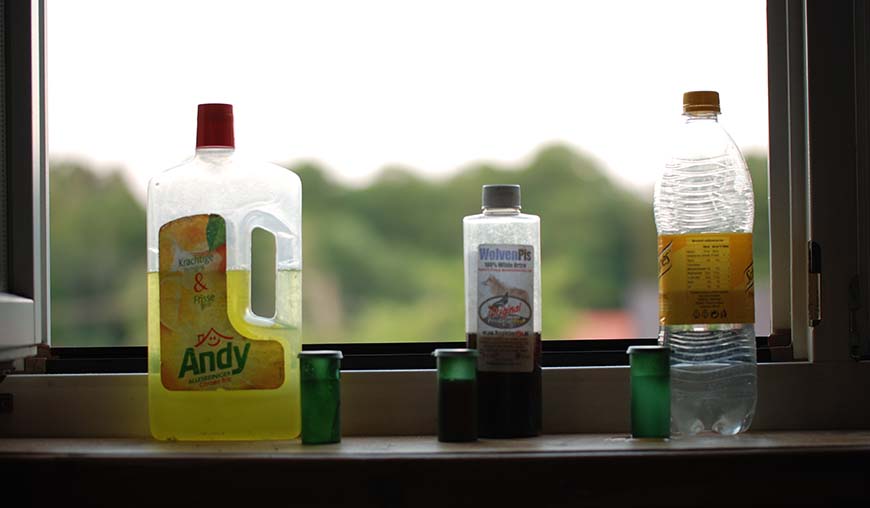Red deer hardly react to wolf urine in the Netherlands and Poland
Large carnivores like wolves are slowly returning to parts of Western Europe, including the Netherlands. Red deer have lived here in the absence of wolves for well over a century. This has led to them not growing wary at the smell of wolf urine, according to researchers at the University of Groningen in collaboration with the Mammal Research Institute (MRI). This research was published on Wednesday 27 November 2019 in the scientific journal PLOS ONE.

To lower the chances of becoming prey, red deer generally grow more wary and do not often eat in places where their greatest predator, the wolf, resides. Through this type of behaviour change, the returning wolves may indirectly lower the grazing pressure of red deer on young trees. ‘But this requires that the deer in these areas, areas to which the wolves are returning after decades of being absent, associate the smell of wolves with potential danger,’ explains Annelies van Ginkel, PhD student at the UG and associate of the Mammal Research Institute of the Polish Academy of Sciences. ‘To test this, we observed the reactions of red deer to water (odourless), wolf urine (a predatory odour) and all-purpose cleaner (an unknown odour) by using camera traps in the Veluwezoom National Park, and we then compared these reactions to those of red deer in Białowieża in Poland, who have lived with wolves for a long time now.’

The fear response
The results are surprising, as both the red deer in Białowieża and those in Veluwezoom react the same way to water as they do to wolf urine. The researchers observed that the images sometimes portrayed a fear response when the deer got very near to the wolf urine, but this happened very sporadically. ‘This is why we think that a stronger signal or a combination of signals is necessary before red deer adjust their behaviour, such as territorial markings in combination with actually seeing a wolf,’ explains Professor Chris Smit of the University of Groningen.

‘Another surprise was that the red deer in Białowieża foraged less near the all-purpose cleaner, while the red deer in the Veluwezoom did not react to this smell at all,’ says Dries Kuijper, Professor at the MRI. Van Ginkel: ‘We suspect that the red deer from the Veluwe associate the smell of all-purpose cleaner with the presence of humans because they are used to a higher number of visitors and, as a result, the smell is more familiar than we first thought.’ In the less visited forest of Białowieża, the smell of soap is most likely not as familiar, which would explain the reaction of the red deer.
| Last modified: | 30 April 2020 3.18 p.m. |
More news
-
24 March 2025
UG 28th in World's Most International Universities 2025 rankings
The University of Groningen has been ranked 28th in the World's Most International Universities 2025 by Times Higher Education. With this, the UG leaves behind institutions such as MIT and Harvard. The 28th place marks an increase of five places: in...
-
05 March 2025
Women in Science
The UG celebrates International Women’s Day with a special photo series: Women in Science.
-
16 December 2024
Jouke de Vries: ‘The University will have to be flexible’
2024 was a festive year for the University of Groningen. In this podcast, Jouke de Vries, the chair of the Executive Board, looks back.
